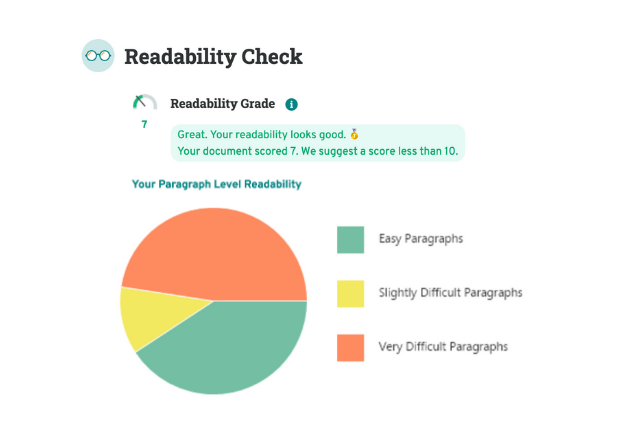
Curious about what a ghostwriter does and how ghostwriting differs from other content writing? Wondering if it might be the career for you? In this guide we explain everything you need to know before making the leap into professional ghostwriting.
What Is a Ghostwriter?
A ghostwriter is a professional writer whose name doesn’t appear on the finished piece of work. You can’t claim that you authored the piece. You’ll have read plenty of ghostwritten work, without ever knowing it.
The market for ghostwriters includes:
- Business writing: Blog posts, articles, and copy for companies
- Non-fiction books: Memoirs, lifestyle books, and business books
- Novel writing: Under a celebrity name, or to carry on a famous series
- Speeches and talks: From CEOs to politicians, and everyone in between
Because you can’t promote it as your work, you can charge a premium, making it a lucrative career option. Ghostwriters usually work freelance on a project basis. You’ll need to handle contracts, negotiate your price, and manage deadlines.
Ghostwriters work in a variety of different ways. Some will write everything; others work more closely with the named author, or expand sections of their writing. It’s important you know the full scope of the project before agreeing your fees.
Do You Need Experience?
This is not a choice for a novice writer. You’ll need some experience to get started as it’s hard to capture the voice and style of a particular person or brand. No one will hire you if you can’t demonstrate that you’ve been successfully published before.
If you want to ghostwrite novels, you’ll be expected to show you’ve already successfully written and published texts in the past. That means you must have published work under your own name. Most successful fiction ghostwriters have a writing career before becoming a ghostwriter.
If you’re looking to ghostwrite content for a company, you can get away with having far less experience, but they’ll still expect evidence to show you have the skills to get a piece to publication. The more you can show them, the higher a price you can negotiate.
Step 1: Getting Started
So, how do you set yourself up as a ghostwriter? As with standard content writing, you need a bank of published work to showcase your talents. Having a portfolio takes away the guess work for anyone hiring you. They can see what you offer without taking risks.
Building Your Profile
Before setting yourself up as a ghostwriter, get published as widely as possible in the field you’d like to specialise in. Guest post on sites with good authority, pitch to literary magazines and industry newspapers within your field.
Build your authority within your niche. The more specialised you are, the higher price you can charge. Be present on social media and interest forums. Talk consistently about industry news and fresh developments to show how knowledgeable you are on this topic.
When you feel ready to promote yourself as a ghostwriter, share it consistently across your online presence. This includes:
- Social media profile pages, banners, and posts
- Professional website clearly showing what you offer
- Professional email address (avoid popular free ones to show you are a proper business)
Increase your chances of being found online by learning more about search engine optimisation (SEO) to get to the top of Google and other search engines.
Showcasing Your Credentials
Building an online profile is pointless if no one ever sees it. Display any published writing on your website and share it across your social media channels. Check periodically to make sure all the links are still working.
Keep a list of your published work with the hyperlinks so you can find them quickly. Systems like Trello or a simple Excel spreadsheet make it simple to keep track of everything. Then, when you pitch to a business or receive an enquiry, you can easily share a few highly relevant samples to show them you’re exactly what they’re looking for.
Step 2: Developing Your Writing Skills
Every writer knows the more you practise, the better you become. To be a ghostwriter, you’ll need to get used to writing in the tone, voice, and style of someone else.
Read widely in and outside of your industry. Try emulating the style of different famous authors to get used to writing in different ways. Read content from big brands and identify words and phrasing they use to make them sound like them.
Find other writers to help you keep improving. Look on social media for writing groups and follow leading ghostwriters online.
Run your writing through ProWritingAid to make sure your spelling and grammar, pacing, dialogue, diction and readability are all up to scratch.
If you’re writing for an unfamiliar audience, the Readability Report can help you work out if you’re hitting the mark. You’ll get a readability score based on the average length of sentences and words in your document. Each paragraph will be highlighted in red, yellow, or green to show how difficult it is to read. This helps you edit more efficiently so you can prioritize the hard-to-read areas.

The readability score you receive aligns with the US school grading system. Did you know that most adults prefer to read fiction at seventh grade level? Discuss the target reading level with your client, and use ProWritingAid to make sure that your writing reflects it.
Step 3: Working with Clients
Ghostwriters are as much business as creativity. Instead of working to your own agenda, you’ll have clients comment on your work, make changes, and expect you to hit their deadlines. Getting communication right is essential.
Listening to clients
Remember this is about them, not you. That doesn’t mean you can’t raise problems, or share your ideas, but it does mean you have to listen to what they want.
Tips for improving client communication:
- Take notes during conversations with them
- Repeat back what they’ve said to check you’re clear
- Be curious and ask questions to delve deeper
- Use a written contract to show the scope and deadline of the work
Every ghostwriting client will have their own expectations about ongoing communication. Some will want to work very closely with you, others will prefer regular meetings, or far less day-to-day contact. Make sure you’re clear about their level of involvement and factor in meeting time to your costings.

Building Communication
Many clients expect you to nail the project first time, but this often isn’t the case. There will inevitably be some to-and-fro to get it right. It’s important you check your ego and listen carefully to any concerns or criticisms to help you shift your writing into the style they want.
Often clients can struggle to explain what feels wrong about a piece of content. Talking and asking questions will help them clarify a particular issue. You’ll often find that rather than the entire piece being wrong, it’s just your vocabulary choice or turn of phrase that needs adjusting to suit.
Negotiating Pay
So how much do ghostwriters charge? Did you really think you’d find a simple answer? Like most writing, there’s no set rate for ghostwriting. You must negotiate the price yourself.
Think about:
- Level of experience: How can I show my competence in this field?
- Length of the project: The more work it takes, the higher your price
- How much involvement you’ll have: Collaborative sessions, meetings, and interviews all need to be budgeted for
Don’t sell yourself short. If you’re cheaper than everyone else, what does that say about the quality of work you do? What kind of customer will you attract? Join social media groups and discussion threads to find helpful advice about pricing. Remember, you can always negotiate down, but never up.
Step 4: How to Get Found
There are plenty of ways to become known as a ghostwriter:
- Sell yourself on social media
- Use SEO to make your website rank on Google
- Write blog posts that answer the questions your potential clients ask
- Join a specialised job board like Reedsy but avoid general low-paying job sites
You can also find clients by searching for them and making a pitch. Avoid any sleezy sales tactics and instead show them the benefits you can offer them if they work with you. Networking is an essential way to find good paying clients.
Testimonials
As a ghost, you don’t talk about your clients. There’s a lot of trust. You know their secrets and you’re paid to keep quiet about them. But if you can’t talk about them, how can you ever show new clients what you can do?
There are other ways to fill your portfolio as a ghostwriter. Talk in general terms about previous work, e.g. “I researched and wrote a 400-page non-fiction book which ranked in the top ten bestseller list on Amazon.”
Talk to clients before you start thinking about how “deep” you will be as a ghost. Some companies will want complete anonymity and may ask you to sign a non-disclosure agreement (NDA). Others will be happy to provide a testimonial that doesn’t specify exactly what you wrote.
Final Thoughts
Being a ghostwriter is a fantastic career option, but it’s not for everyone. Writing in a different voice and style from your own is hard and takes time to perfect. Communication with your clients is key.
Whilst you can charge a premium for your work, remember you won’t be able to use it to promote yourself. It’s important you continue to publish under your own name to be seen on social media and online. Plan time dedicated to networking and finding potential clients to ensure you have a steady stream of work.


